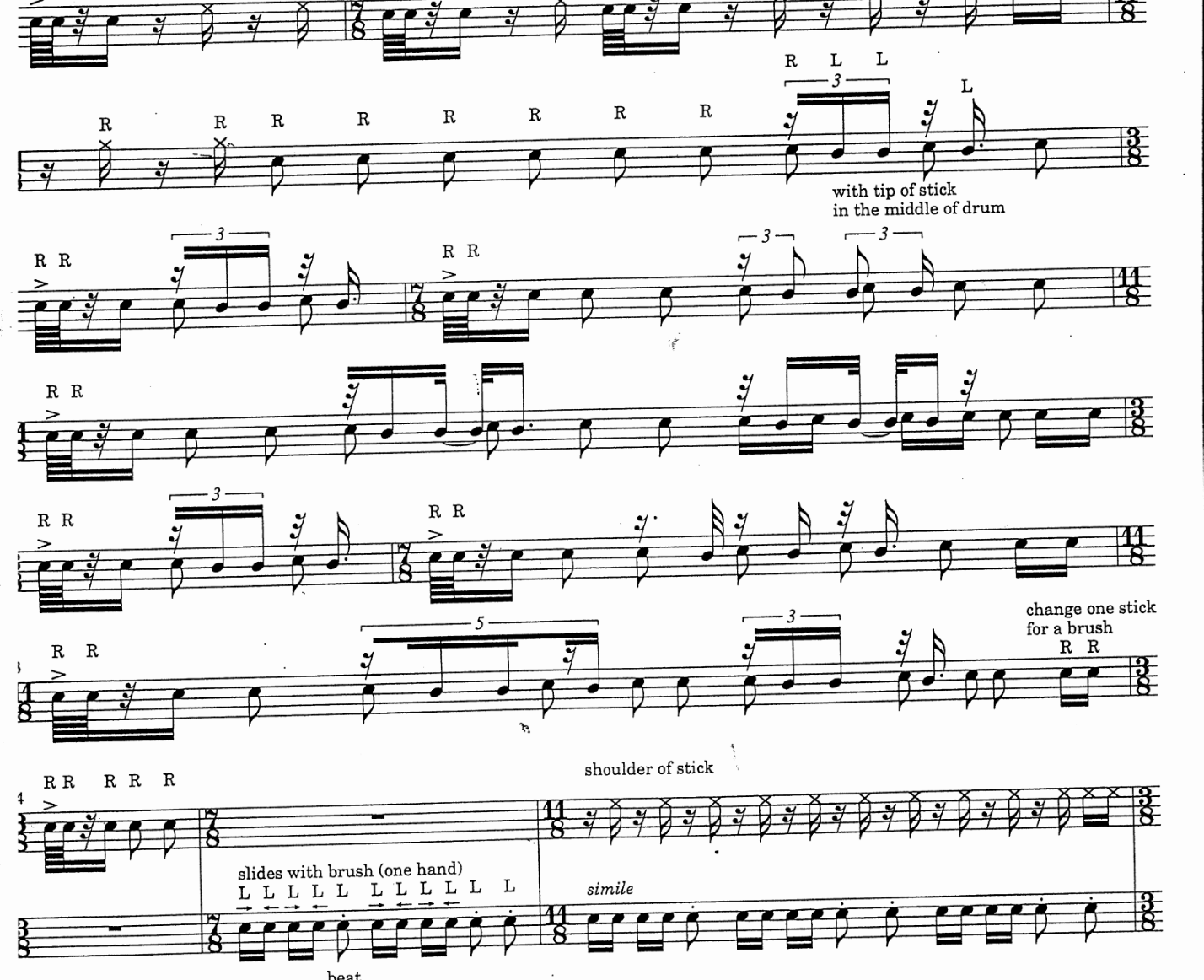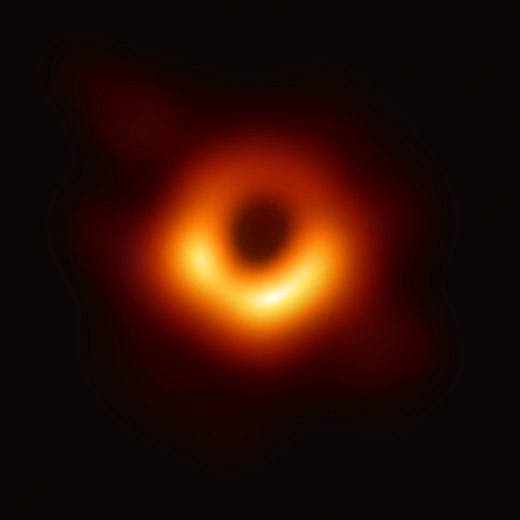


When I try to consider rhythm merely as timing, I always fail. I fall into the gaps of space I didn’t know were there–or maybe I knew, but didn’t gauge how big they were, or are, or will be (because time is in all space, even if it isn’t always real). But if I knew twenty years ago when I was learning my first five-stroke roll that space and time are important for relationship more than for rhythm, I wouldn’t have played percussion. I would have focused on drawing or sports or writing or nothing at all because my mind, the complexity of my mind and my relationship to it has changed too much to tune to those pitches of an unchanging relationship.
The intersections of time and space: accepting a job offer and committing to spend half of every day in one place, time shooting forward without hardly any movement. Getting married and committing all the time left in my life along with all the space I will ever have. Picking a major at college, unaware that some, most, or all of the time that is to come is being chosen for me before I’ve even conceptualized what space(s) I occupy in the world.

When it comes to rhythm, there’s something about dividing time and seeing its division in space. Sometimes I physically see it in the space around me and other times I feel it in the space I’m physically in, which makes it different depending on where I am. Bigger rooms create more complex divisions of time where I can imagine the space between or in rhythms; smaller rooms allow more precise divisions of time where I must repress space to avoid the conflict of needing or using more space than is available. The more space available for time to divide itself and travel audibly, the harder it is to hear, but the more interesting it becomes to see.
The speed of light is a measurement of how much time it takes to travel a distance. The speed of light never changes no matter what mechanism is used to shoot the light. A laser beam won’t shoot light any faster than a car headlight. The only thing that can change are the measurements of distance (how big the room is) and the time (how big the spaces are between each rhythm), but the relationship between space and time won’t doesn’t change. If I move slowly through space, playing so slow that that the silence between each note hurts, more time passes. But if I speed through rhythms–leaving no space between notes, hardly any time passes.

Movies make it seem like it’s really cool when musicians can see what they’re playing, when notes are certain colors, when sounds are certain feelings. When it first started happening my first year in college, it just hurt. It began to keep me up at night, every. single. night. until 5 and 6 in the morning and the only way I knew how to cope was to practice, non-stop, sometimes 10 hours at a time in the exact same space. 10 hours in the same room. Stuck. Then it started clouding my thoughts and taking over my ability to think. I could read music, listen to sentences, and watch a conductor with all the learned knowledge I needed, but then I’d fall in the gaps of space between notes, between words, between beats. That’s when I started losing time, when I’d wake up wondering not what happened yesterday, but why the week skipped yesterday, not understanding why it’s Thursday today when yesterday was Tuesday. Or when a friend from college recounts a prominent event that I have no recollection of, or what happened between ages 19 and 24, 24 and 26, 26 and 31. But most times, it’s just me counting to a certain measure, watching the conductor bring me to that measure, spacing each beat and preparing to play, then not knowing why the very moment I was to play disappeared from the music. The moment disappears and then moments later I just…wake back up…and I’m standing there on stage looking around…and the conductor is still going…and the musicians are still playing…and I just ask over and over, “where did everyone go? how did they get back here? am I still here?”

Time and space cross, overlap, join together with chemical bonds in an electromagnetic field, and then vanish. I don’t know when I left the stage, how I got back on it, or where the time in the music went. Every concert. Every public performance. No nerves or anxiety about stepping on stage, no self-doubt about how well I’ll play–just black holes, one after the other. It’s why parts of me dissolved and dissolve when I play the drums. Is this the part of Einstein’s theory of relativity that they forgot to teach me at the conservatory?